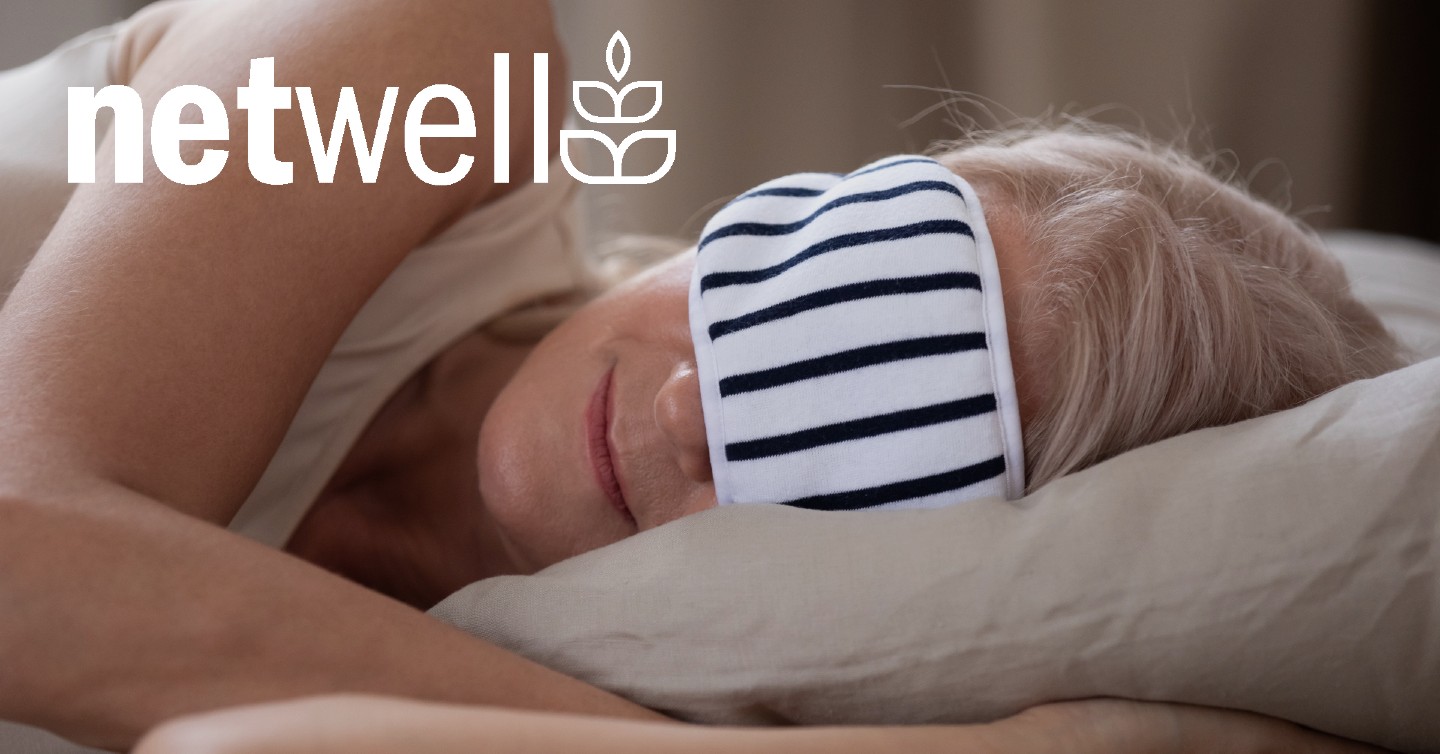netwell: The Whole-Body Benefits of Healthy, Sufficient Sleep

How Much Sleep Do I Need and What are the Benefits of Good Sleep?
By Network Health Behavioral Health Team
Originally published on 2/15/2021 at 4:00 p.m.
When it comes to the way you feel, your body’s mental and physical health are inseparable from one another. Taking care of each may seem like separate endeavors and nothing satisfies both like sleep.
Sleep, after all, is your body’s time to recharge and reinvigorate. During sleep, both your body and brain experience different types of rest. For your brain, toxins are removed, and complicated problems are worked on (if you’ve ever had the solution to a problem come to you in a dream, you’re not alone).
Your body, on the other hand, enjoys a reset from the day, allowing your muscles, tendons, joints and bones to decompress and stretch out. Similarly, other important systems to your body’s function enjoy a rebuilding and preparation session for the demands of the coming day.
Sleep is incredibly important.
How much sleep do I need every night?
The National Sleep Foundation recommends adults get somewhere between seven and nine hours of sleep a night. Sound like a lot? Children need even more, with up to ten or eleven hours recommended for adequate growth and development.
While it may seem like it’s been a long time since you were able to enjoy a full night’s sleep, this number ensures your body has adequate time to reset and recalibrate before firing up all the important systems to 100 percent the next day.
Sleeping less than this amount every now and again shouldn’t be catastrophic to your health but striving for seven to nine hours of sleep a night should be a priority for mental, emotional and physical health and well-being.
If you’re somebody who swears by your ability to only get four and a half hours, you may be doing your body and mind unseen damage, while still waking up in a natural sleep-cycle flow allowing you to feel well-rested.
What are the benefits of good sleep?
Good, restful sleep has several benefits for your brain, your body and everything in between. Among them, you’ll enjoy the following.
- Less stress – Adequate sleep reduces our daytime stress.
- Better memory – Do you struggle to recall the name of a street you visited yesterday? Getting more sleep can help reduce the frequency of these frustrating memory lapses.
- Better mood – Find yourself running out of patience often? Getting more sleep can help with your general outlook and views toward the events of the day.
- More energy – Sufficient sleep gives you more energy to tackle personal and/or professional goals in the day ahead.
- Improved immunity – With annual bugs like the flu, fevers, colds and worse, good sleep allows your body to build up your immune system to fight off microscopic invaders.
- A healthier heart – During sleep, your blood pressure lowers and inflammation within your cardiovascular system subsides. Over time, this can mean a reduction in heart disease or cardiac arrest.
- More brainpower – While sleep can’t increase your intelligence, it can increase your brain’s ability to use its resources for problem-solving, attention, communication and thinking. If you’re struggling to work out a big problem, a quick (20 minute) mid-day nap could be just the thing that gets two and two to equal four.
- Better weight management – For several reasons, many relating to metabolism, poor sleep is linked to weight gain. Short sleep duration is one of the most prominent risk factors for obesity. Trying to shed those extra pounds? Get good sleep every night.
- Improved productivity – With increased attention and focus, eight hours of sleep can mean fewer hours spent on personal and professional projects.
- As you can see, getting the right sleep is crucial for optimal mental and physical health. Here are some tips to get those seven to nine hours every day.
How to get good sleep every night
Getting a full night’s sleep isn’t as easy as it sounds. After all, most of us have several internal and external distractions and factors making it difficult to get to sleep and stay asleep.
Here are some tips.
Routine, routine, routine
Getting great sleep every night is all about routine. Plan ahead for what time you will go to bed and what time you will wake up, making sure to give yourself a little extra time for falling asleep. Get up at the same time every day (yes, even on weekends) to give your body a schedule to anticipate sleep and prepare for the reset it brings.
Spend your daytime hours active
Burning calories during the day allows your body to want to rest when given the opportunity later on. Exercise is not only a great stress reliever but can also help you get adequate sleep. Just make sure not to exercise three to four hours before sleeping.
Comfort is king
Keeping your bedroom comfortable and slightly cooler (about 65 degrees Fahrenheit is ideal), is great for optimal sleep. Wear comfortable sleepwear, clean your sheets every week and designate a separate sleeping space for pets to prevent distractions.
Limit distracting noise
Television, electronics and alerts can be instant distractions, so it’s important to make sure those things are turned off. Most electronics have a do not disturb mode, which only passes through notifications from contacts who have tried to reach you more than once. Many find white noise to be a great sleep aid. While independent machines exist for white noise, you may find that fans, air purifiers or humidifiers (during the winter months) can achieve the same results.
Limit distracting light
Create a sleeping environment that is dark and free of visual distractions. Take the TV out of the room, sleep with the phone face down and consider investing in some room-darkening shades or an opaque sleeping mask. Limit screen time two hours before your go to sleep to prevent distraction from viewing blue screen light. Finally, keep your sleeping space clean and free from clutter to prevent stress that can interfere with your sleep.
Eat well to sleep well
The hours leading up to sleep are important. Eating heavy, rich meals with high fat, high sodium or high sugar/spice content can create indigestion and excess energy before bed. Instead, substitute foods with magnesium or tryptophan (a protein that helps aid sleep). Also, avoid alcohol or caffeine in the hours leading up to bedtime.
Limit naps
Naps can be great for focus and small resets throughout the day. We even recommended them earlier in this article. Limiting them to 30 minutes maximum, however, means your body isn’t considering them a replacement for sleep and will still allow you to fall asleep easier when it is time for bed.
Get rid of allergens
Allergens, such as dust or dander, in your sleeping area can result in uncomfortable and distracting symptoms like congestion. Clean your sleeping area regularly and, if needed, use an air purifier to remove allergens.
Sleep well – Your body and mind will thank you
When it comes to self-care activities, getting good and consistent sleep is one of the best things you can do for yourself. If you find yourself unable to sleep, despite trying some of these strategies, speaking with your personal doctor may help identify the reason and provide treatment options.
If you have questions about how your health plan can help you get the most out of your days and nights, contact us today.



